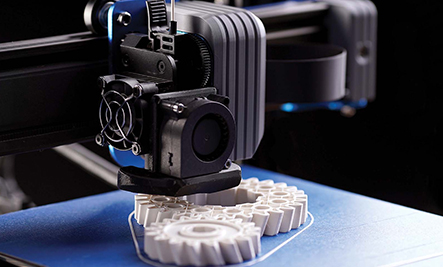5 Benefits of Rapid Prototyping in the Automotive Industry
Enhanced Product Development Speed
One of the most significant advantages of using rapid prototyping in the automotive industry is the speed at which product development can be accomplished. By creating physical models quickly and efficiently, manufacturers can validate designs in a shorter timeframe compared to traditional methods. This allows automotive companies to iterate faster, identify design flaws, and make necessary adjustments, helping to reduce time-to-market for new vehicles or components. The ability to swiftly produce and test prototypes ensures that companies stay ahead of competitors while responding to market demands more effectively.
Cost-Effective Design Validation
Traditional manufacturing methods require expensive tooling and molds for producing prototypes, which can be a costly process, especially when multiple iterations are needed. Rapid prototyping eliminates the need for specialized tooling, allowing automotive manufacturers to create accurate models at a fraction of the cost. This is particularly beneficial during the early stages of development when design changes are frequent. By utilizing rapid prototyping, companies can explore various design options without the financial burden, ultimately leading to more cost-effective product development.

Improved Design Flexibility
Automotive design is a complex and iterative process. With automotive rapid prototyping, engineers and designers have the flexibility to experiment with different shapes, materials, and configurations. The technology allows for quick modifications and adjustments to prototypes, helping designers to refine their ideas and develop more innovative solutions. This flexibility is particularly valuable when working on complex components such as engine parts or aerodynamics, where even minor changes can have a significant impact on performance. Rapid prototyping supports the creative process, enabling continuous improvement of designs.
Realistic Functional Testing
Functional testing is a critical aspect of automotive product development. Rapid prototyping allows manufacturers to produce models using materials that closely resemble those used in the final product. This means that prototypes can be subjected to rigorous testing in real-world conditions, such as heat resistance, mechanical stress, or durability tests. By simulating the actual performance of components, manufacturers can identify and address potential issues early in the development process, ensuring that the final product meets safety and performance standards before mass production.
Reduced Risk of Production Failures
By enabling early testing and validation, rapid prototyping helps reduce the risk of failures during mass production. Traditional processes often involve finalizing designs based on digital models alone, which can sometimes lead to unexpected challenges once production begins. With rapid prototyping, automotive manufacturers can catch design flaws, material inconsistencies, or assembly issues before they escalate into costly production problems. This proactive approach minimizes the chances of production delays, recalls, or defects, ensuring a smoother transition from prototype to final product.
Conclusion
In conclusion, rapid prototyping service offers numerous benefits to the automotive industry, including faster development times, cost savings, design flexibility, improved functional testing, and reduced production risks. By integrating rapid prototyping into their design and manufacturing processes, automotive companies can create better products, improve efficiency, and bring innovative vehicles to market faster. This technology has become an essential tool for driving innovation and maintaining a competitive edge in the ever-evolving automotive landscape.
Previous
None
If you are interested in sending in a Guest Blogger Submission,welcome to write for us!

Comments
0